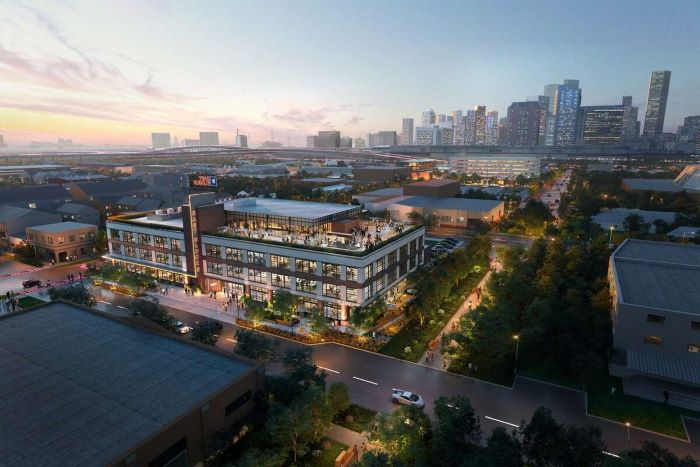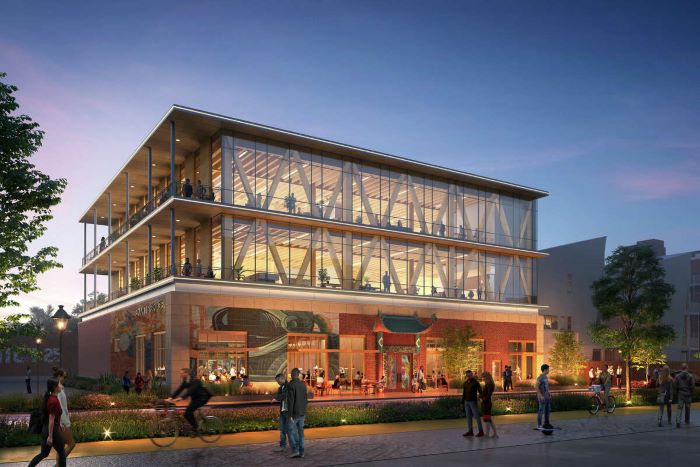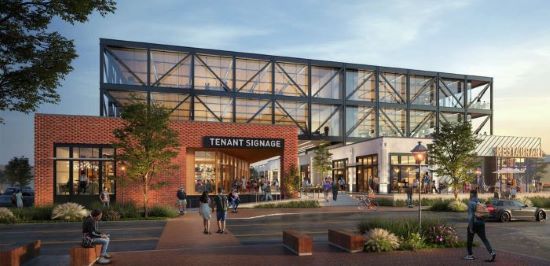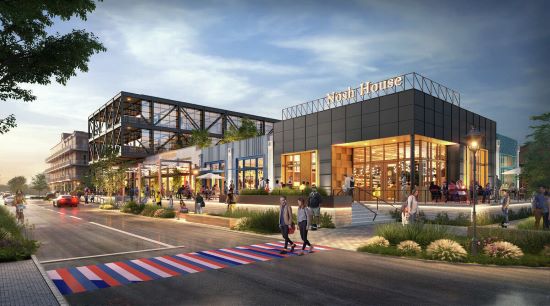New 10-Block Mixed-Use Development to Revitalize EaDo Neighborhood
Published Nov 15, 2023 by Hailea Schultz
Real estate developers Pagewood and Wile Interests announced a new redevelopment project that will transform warehouses in Houston’s bustling East Downtown neighborhood into a massive 10-block mixed-use district.
Slated to break ground in the second quarter of 2024, the multi-phased development – dubbed East Blocks, will encompass 513,000 square feet southwest of Shell Energy Stadium, according to Houston Business Journal.
Phase one will feature a unique blend of restaurants, shops, office and green space and will include existing tenants 8th Wonder Brewery and Pitch 25, while phase two will focus on additional retail and restaurant space.
Aiming to enhance walkability in the area, the project includes converting the site’s former railways into four city blocks of green space that will connect the revitalized warehouses. The existing promenade will become a dedicated greenspace for community gatherings and activities such as fitness classes and farmer’s markets.
Additionally, East Blocks will include an open-air alleyway concept to connect three buildings along Hutchins and McKinney Street and a walking and biking loop that will provide easy access to the new district from Downtown and the Columbia Tap trails that run through EaDo and the East End.
East Blocks joins several other new developments taking shape in Houston’s thriving EaDo neighborhood as the area continues to transform into a livelier and more walkable neighborhood.
“Our teams are working diligently to infuse the diversity and personality found across Houston at East Blocks, while also making it a truly walkable and bikeable destination the city has yet to see,” said Paul Coonrod, founder and managing principal of Pagewood in a statement. “Once complete, visitors can expect a dynamic destination with unique retail, restaurants and office space paired with local art, events with sport teams and charities, and experiences that highlight Houston’s position as a global, first-class city.”
East River, a 150-acre mixed-use development situated on the banks of Buffalo Bayou opened this year featuring office, restaurant and retail space along with a 360-unit apartment complex. The project also included a nine-hole golf course and restaurant concept – East River 9.
A similar concept, The Plant, a 17-acre mixed-use district, will revamp the historic streets of Second Ward, establishing a pedestrian-friendly district lined with a diverse mix of restaurants and shops. The Houston Astros also recently announced plans for an entertainment district adjacent to Daikin Park that will feature a 17-story hotel, 60,000 square feet of retail space and a three-level gathering area for fans to watch games and other major sporting events.
These developments not only address common challenges seen within the city like lack of walkable areas, but they also speak to Houston’s unwavering commitment to providing an exceptional quality of life.
Discover more about Houston’s Neighborhoods and Communities.
 The Houston Report
The Houston Report






















